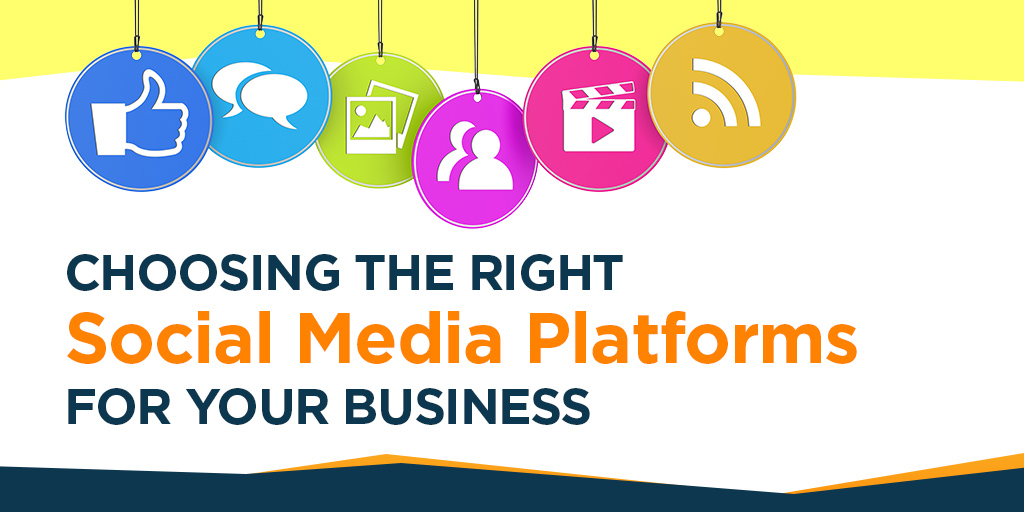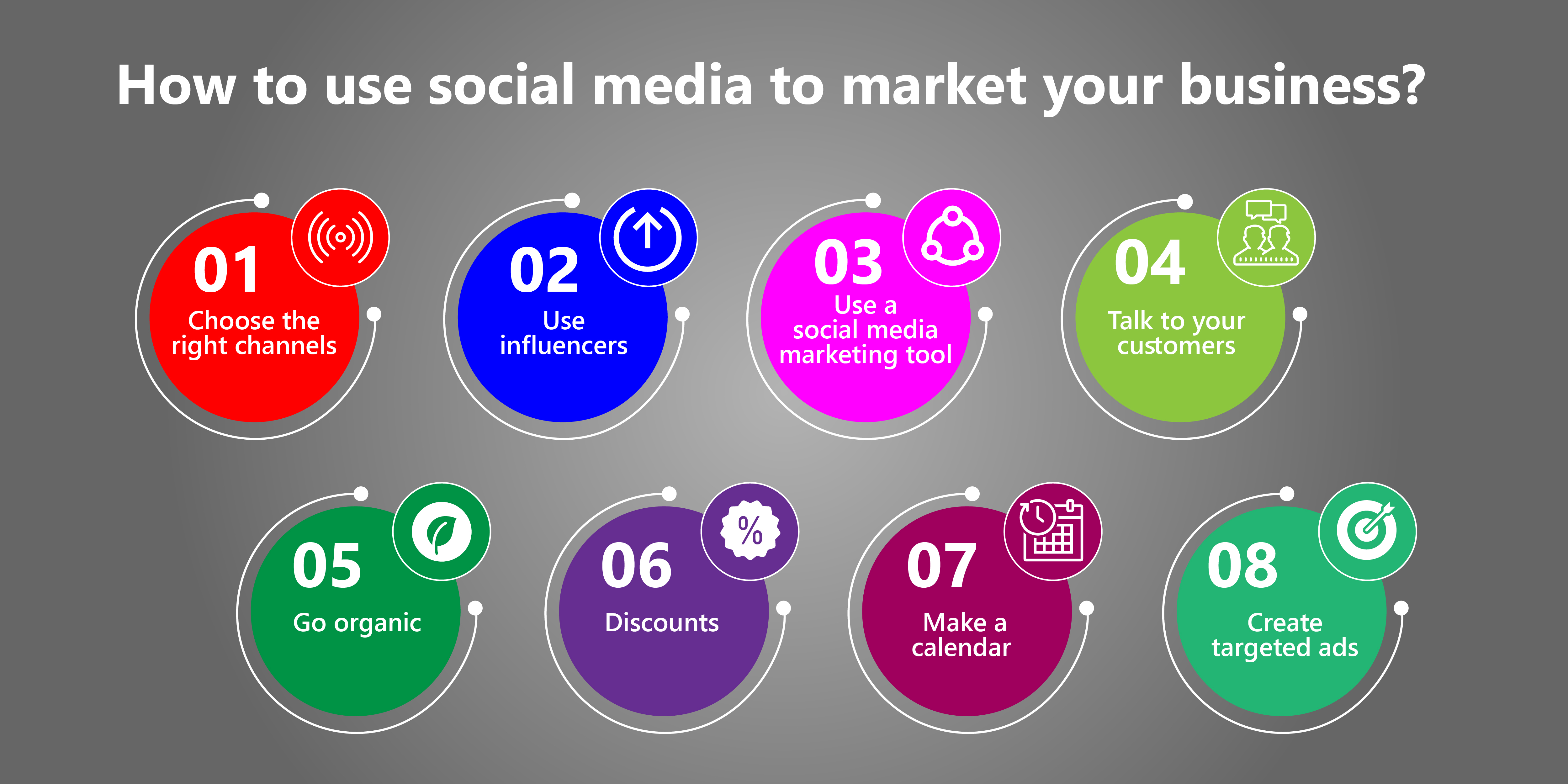Choosing the Right Social Media Platforms for Your Niche
When it comes to using social media to make money, selecting the right platforms for your niche is crucial. With so many options available, it can be overwhelming to decide which platforms to focus on. However, by understanding the unique features and user demographics of each platform, you can make informed decisions that drive results.
For example, Instagram is ideal for visually-oriented niches such as fashion, beauty, and travel. With over 1 billion active users, Instagram offers a vast audience for businesses and individuals looking to showcase their products or services. YouTube, on the other hand, is perfect for niches that require in-depth content, such as education, tutorials, and reviews. With over 2 billion monthly active users, YouTube offers unparalleled reach and engagement.
TikTok, a relatively new player in the social media landscape, has quickly gained popularity among younger audiences. With its short-form video format, TikTok is ideal for niches that require creativity and entertainment, such as music, dance, and comedy. Twitch, a live streaming platform, is perfect for niches that require real-time interaction, such as gaming and esports.
When choosing a social media platform, consider your target audience and the type of content you want to create. Ask yourself, “Where is my audience most active?” and “What type of content will resonate with them?” By answering these questions, you can select the right platforms for your niche and increase your chances of success.
Building a Loyal Following: Content Creation and Engagement Strategies
Creating high-quality, engaging content is crucial for building a loyal following on social media. When it comes to using social media to make money, having a loyal audience is essential for driving sales, promoting products, and increasing revenue. However, creating content that resonates with your audience can be challenging, especially in a crowded social media landscape.
To create engaging content, focus on using visuals, storytelling, and consistency. Visuals such as images, videos, and infographics can help capture your audience’s attention and convey complex information in a simple way. Storytelling is also an effective way to connect with your audience and create an emotional connection with your brand. Consistency is key to building trust and loyalty with your audience, so ensure that you post content regularly and maintain a consistent tone and style.
Engagement is also critical for building a loyal following. Respond to comments and messages promptly, and use social listening to stay on top of industry trends and conversations. Use hashtags to increase the visibility of your content and participate in online communities related to your niche. By engaging with your audience and creating high-quality content, you can build a loyal following that will help drive your social media monetization efforts.
Additionally, consider using social media analytics tools to track your performance and understand what works and what doesn’t. This will help you refine your content strategy and create content that resonates with your audience. By focusing on content creation and engagement, you can build a loyal following that will help you achieve your social media monetization goals.
Monetization Strategies: Advertising, Sponsorships, and Affiliate Marketing
When it comes to using social media to make money, there are several monetization strategies that can be employed. Advertising, sponsorships, and affiliate marketing are three popular methods that can help individuals and businesses generate revenue on social media.
Advertising on social media platforms such as Facebook, Instagram, and LinkedIn can be an effective way to reach a targeted audience and drive traffic to a website or landing page. By creating high-quality ad content and targeting specific demographics, interests, and behaviors, businesses can increase their online visibility and drive conversions.
Sponsorships and influencer marketing are another way to monetize social media presence. By partnering with brands and promoting their products or services, influencers can earn money and build their personal brand. To be successful in sponsorships and influencer marketing, it’s essential to have a large and engaged following, as well as a strong reputation and credibility in your niche.
Affiliate marketing is a performance-based marketing model that allows individuals to earn commissions by promoting products or services from other companies. By joining affiliate programs and sharing affiliate links on social media, individuals can earn money from sales generated through their unique referral link.
To effectively integrate these monetization strategies into your content, it’s essential to understand your audience and create content that resonates with them. Use social media analytics tools to track your performance and adjust your strategy accordingly. Additionally, ensure that you comply with the Federal Trade Commission (FTC) guidelines on sponsored content and affiliate marketing to maintain transparency and authenticity with your audience.
Selling Products and Services: Utilizing Social Media for E-commerce
Social media has become an essential channel for e-commerce, allowing businesses to sell products and services directly to their target audience. By leveraging social media platforms, businesses can increase their online visibility, drive traffic to their website, and boost sales.
One of the most effective ways to sell products and services on social media is through the use of e-commerce platforms. Platforms like Shopify, WooCommerce, and BigCommerce allow businesses to create online stores and sell products directly to their audience. These platforms also provide features like payment gateways, shipping integrations, and inventory management, making it easy to manage and fulfill orders.
Online marketplaces like Amazon, eBay, and Etsy are also popular platforms for selling products and services. These marketplaces provide a large customer base and a trusted platform for businesses to sell their products. By optimizing product listings and using relevant keywords, businesses can increase their visibility and drive sales.
Social media shopping features like Instagram Shopping, Facebook Shop, and Pinterest Shopping also provide businesses with an opportunity to sell products directly to their audience. These features allow businesses to tag products in their posts and stories, making it easy for customers to purchase products from their feed.
To effectively utilize social media for e-commerce, businesses should focus on creating high-quality product content, optimizing product listings, and providing excellent customer service. By doing so, businesses can increase their online visibility, drive sales, and build a loyal customer base.
Additionally, businesses should also focus on building a strong brand presence on social media, by creating engaging content, responding to customer inquiries, and using social media analytics to track their performance. By doing so, businesses can build trust and credibility with their audience, and increase their chances of success in social media e-commerce.
Utilizing Influencer Marketing and Brand Partnerships
Influencer marketing has become a popular way for individuals and businesses to monetize their social media presence. By partnering with brands, influencers can promote products or services to their audience and earn money through sponsored content. However, to be successful in influencer marketing, it’s essential to understand how to partner with brands, negotiate sponsored content, and maintain authenticity and transparency in your collaborations.
When partnering with brands, it’s crucial to choose brands that align with your values and audience interests. This will help you maintain authenticity and credibility with your audience. Additionally, make sure to clearly disclose sponsored content to your audience, using hashtags like #ad or #sponsored. This will help you comply with Federal Trade Commission (FTC) guidelines and maintain transparency with your audience.
Negotiating sponsored content can be challenging, but it’s essential to get it right. Make sure to clearly outline the terms of the partnership, including the scope of work, compensation, and expectations. Additionally, ensure that you have a clear understanding of the brand’s goals and objectives, and that you can deliver high-quality content that meets their needs.
Maintaining authenticity and transparency in your collaborations is crucial for building trust and credibility with your audience. Make sure to only promote products or services that you believe in, and that align with your values and audience interests. Additionally, be open and honest with your audience about your partnerships, and clearly disclose sponsored content.
By following these tips, you can successfully utilize influencer marketing and brand partnerships to monetize your social media presence. Remember to always prioritize authenticity and transparency, and to clearly disclose sponsored content to your audience. By doing so, you can build trust and credibility with your audience, and achieve long-term success in social media monetization.
Measuring Success: Analytics and Performance Tracking
To ensure the success of your social media monetization efforts, it’s essential to track your performance and measure the effectiveness of your strategy. By using analytics tools and metrics, you can gain valuable insights into your audience’s behavior, engagement, and conversion rates.
Engagement rates are a crucial metric to track, as they indicate how well your content is resonating with your audience. By monitoring engagement rates, you can identify which types of content are performing well and adjust your strategy accordingly. Follower growth is another important metric, as it indicates the rate at which your audience is growing.
Conversion rates are also a key metric to track, as they indicate the percentage of users who are taking a desired action, such as making a purchase or signing up for a newsletter. By monitoring conversion rates, you can identify which types of content are driving the most conversions and adjust your strategy accordingly.
There are many analytics tools available that can help you track your performance and measure the success of your social media monetization efforts. Some popular options include Google Analytics, Facebook Insights, and Twitter Analytics. By using these tools, you can gain valuable insights into your audience’s behavior and adjust your strategy to optimize your results.
In addition to using analytics tools, it’s also essential to track your performance manually. By monitoring your engagement rates, follower growth, and conversion rates, you can identify areas for improvement and adjust your strategy accordingly. By regularly reviewing your performance, you can ensure that your social media monetization efforts are on track and make adjustments as needed.
Staying Ahead of the Game: Social Media Trends and Best Practices
To achieve long-term success in social media monetization, it’s essential to stay up-to-date with the latest social media trends and best practices. Social media platforms are constantly evolving, with new features and algorithm changes being introduced regularly. By staying ahead of the game, you can adapt your strategy to optimize your results and stay ahead of the competition.
One of the most important trends in social media is the rise of video content. Video content has been shown to be highly engaging, with users spending more time watching videos than reading text-based content. By incorporating video content into your social media strategy, you can increase engagement and drive more conversions.
Another trend in social media is the use of influencer marketing. Influencer marketing has been shown to be highly effective, with influencers having a significant impact on their followers’ purchasing decisions. By partnering with influencers in your niche, you can reach a wider audience and drive more sales.
Finally, it’s essential to stay up-to-date with the latest social media best practices. This includes using high-quality visuals, creating engaging content, and responding to comments and messages promptly. By following these best practices, you can build a strong social media presence and drive more conversions.
By staying ahead of the game and adapting to the latest social media trends and best practices, you can achieve long-term success in social media monetization. Remember to always keep your audience in mind and create content that resonates with them. By doing so, you can build a loyal following and drive more conversions.
Staying Ahead of the Game: Social Media Trends and Best Practices
To achieve long-term success in social media monetization, it’s essential to stay up-to-date with the latest social media trends and best practices. Social media platforms are constantly evolving, with new features and algorithm changes being introduced regularly. By staying ahead of the game, you can adapt your strategy to optimize your results and stay ahead of the competition.
One of the most important trends in social media is the rise of video content. Video content has been shown to be highly engaging, with users spending more time watching videos than reading text-based content. By incorporating video content into your social media strategy, you can increase engagement and drive more conversions.
Another trend in social media is the use of influencer marketing. Influencer marketing has been shown to be highly effective, with influencers having a significant impact on their followers’ purchasing decisions. By partnering with influencers in your niche, you can reach a wider audience and drive more sales.
Finally, it’s essential to stay up-to-date with the latest social media best practices. This includes using high-quality visuals, creating engaging content, and responding to comments and messages promptly. By following these best practices, you can build a strong social media presence and drive more conversions.
By staying ahead of the game and adapting to the latest social media trends and best practices, you can achieve long-term success in social media monetization. Remember to always keep your audience in mind and create content that resonates with them. By doing so, you can build a loyal following and drive more conversions.
In conclusion, using social media to make money requires a combination of creativity, strategy, and adaptability. By following the tips and best practices outlined in this article, you can increase your chances of success and build a lucrative online business. Remember to stay up-to-date with the latest social media trends and best practices, and always keep your audience in mind.








